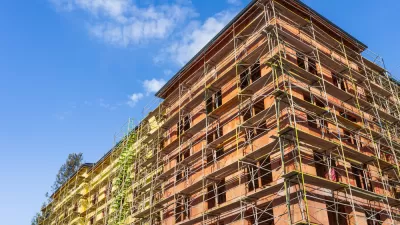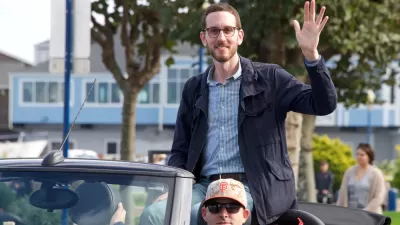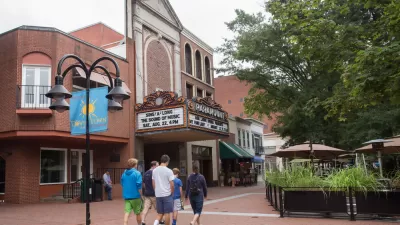"Everything You Think You Know About Housing Is Probably Wrong," reads the headline of this New York Times article.

Michael Kimmelman, New York Times architecture critic, reviews a new show at the Skyscraper Museum in New York City with provocations about the level of understanding among the general public on the subject of housing policy and the housing market.
The show, called "Housing Density," is assessed by Kimmelman as both timely and thought-provoking, and likely to challenge assumptions about planning and cities.
However you calculate it, the word “density” sounds a lot like a synonym for overcrowding and congestion, for too-tall buildings and greedy real estate developers, unwanted neighbors and lost parking spaces. Such associations make the mere mention of the term a Molotov cocktail that opponents of housing initiatives can lob at community board meetings.
This is a big problem. To address the country’s monumental housing crisis and also become less automobile- and carbon-dependent, America needs to densify its job-rich metro areas so that more people can afford to live there and walk, bike and take public transit to get to work and back. According to a much-cited report by the McKinsey Global Institute, California is 3.5 million houses short. Housing shortages exacerbate home prices and homelessness and cause all sorts of other ripple effects on commute times, economic productivity, health and family life.
With plenty of anecdotes of recent controversy over the claims listed above, Kimmelman suggests that the new exhibition is an antidote to the prevailing wisdom among well-to-do NIMBYs and anti-development tenant activists. "Housing Density" points out misconceptions about density, according to Kimmelman, who supports the attempt to push the urban planning discussion in a more productive, healthier direction.
FULL STORY: Everything You Think You Know About Housing Is Probably Wrong

Maui's Vacation Rental Debate Turns Ugly
Verbal attacks, misinformation campaigns and fistfights plague a high-stakes debate to convert thousands of vacation rentals into long-term housing.

Planetizen Federal Action Tracker
A weekly monitor of how Trump’s orders and actions are impacting planners and planning in America.

San Francisco Suspends Traffic Calming Amidst Record Deaths
Citing “a challenging fiscal landscape,” the city will cease the program on the heels of 42 traffic deaths, including 24 pedestrians.

Defunct Pittsburgh Power Plant to Become Residential Tower
A decommissioned steam heat plant will be redeveloped into almost 100 affordable housing units.

Trump Prompts Restructuring of Transportation Research Board in “Unprecedented Overreach”
The TRB has eliminated more than half of its committees including those focused on climate, equity, and cities.

Amtrak Rolls Out New Orleans to Alabama “Mardi Gras” Train
The new service will operate morning and evening departures between Mobile and New Orleans.
Urban Design for Planners 1: Software Tools
This six-course series explores essential urban design concepts using open source software and equips planners with the tools they need to participate fully in the urban design process.
Planning for Universal Design
Learn the tools for implementing Universal Design in planning regulations.
Heyer Gruel & Associates PA
JM Goldson LLC
Custer County Colorado
City of Camden Redevelopment Agency
City of Astoria
Transportation Research & Education Center (TREC) at Portland State University
Jefferson Parish Government
Camden Redevelopment Agency
City of Claremont





























